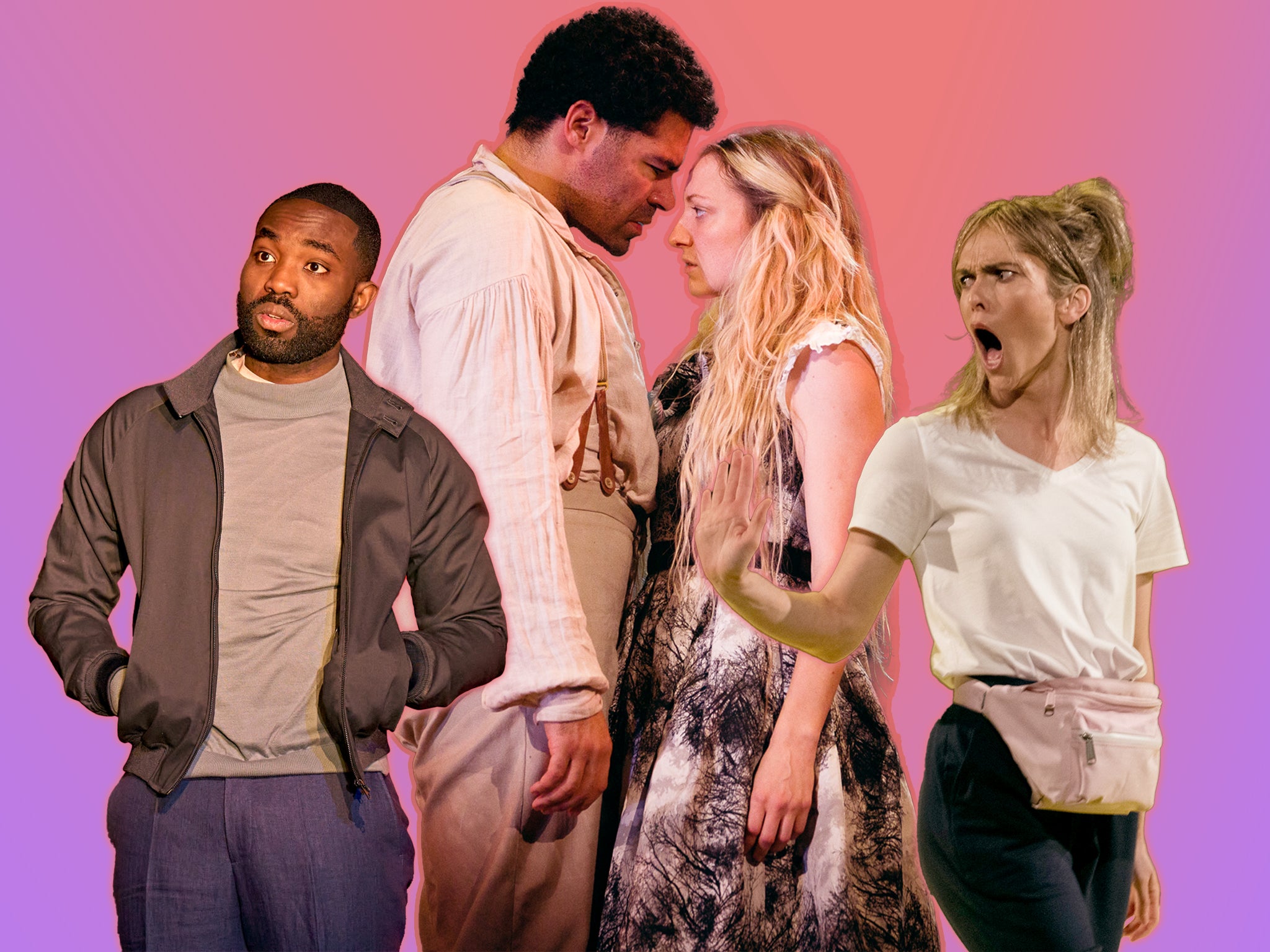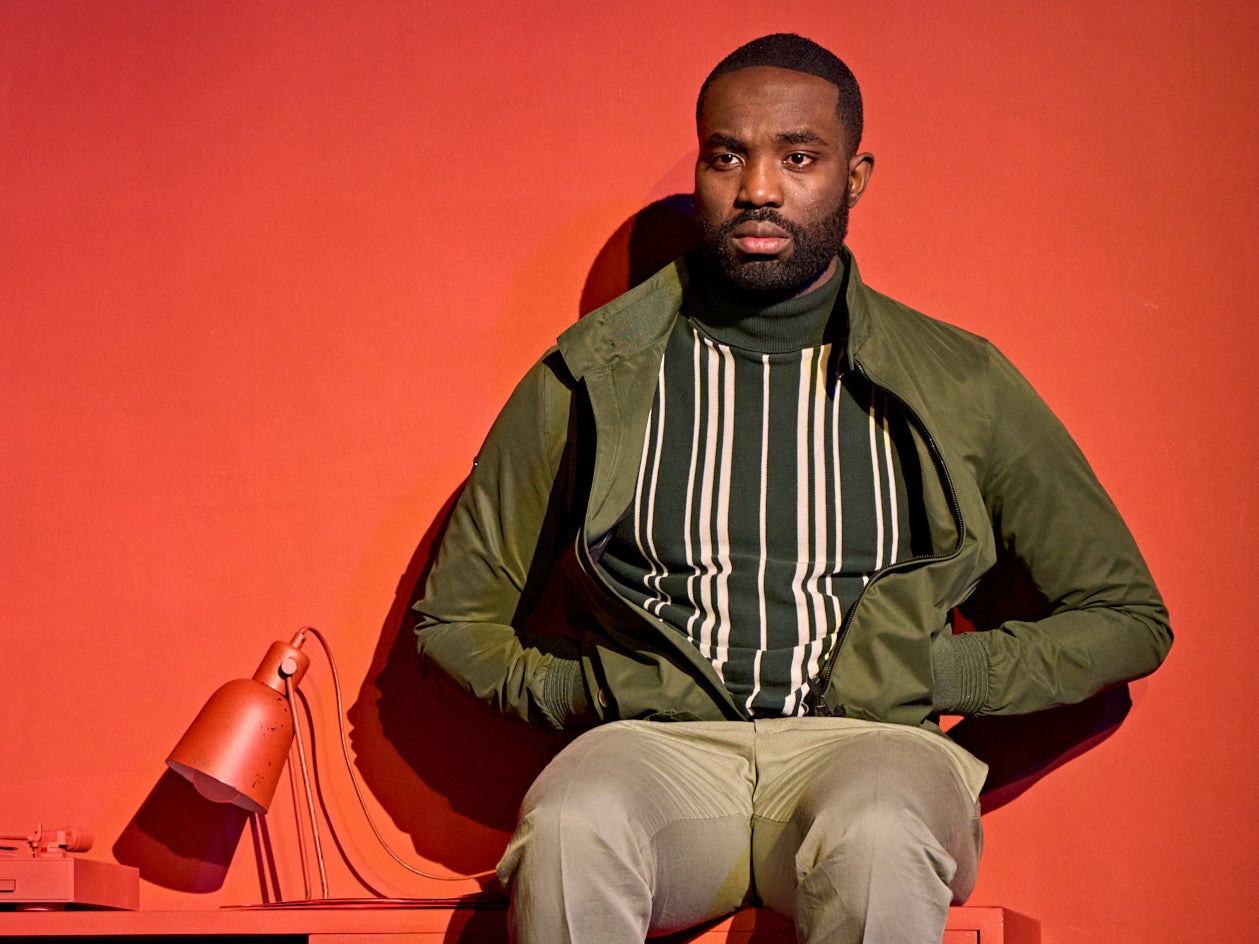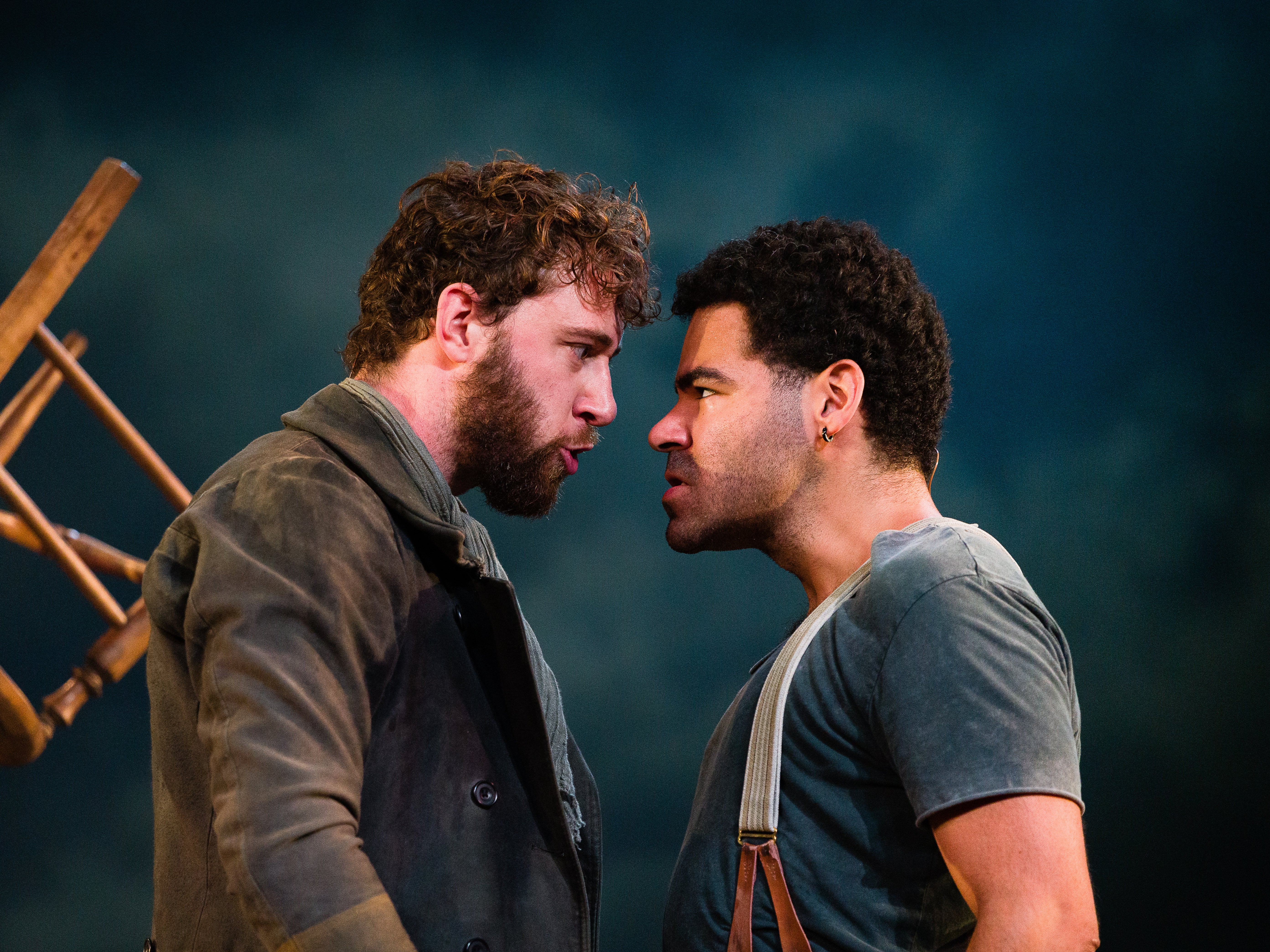The week on stage: From the ‘boisterous’ Wuthering Heights to the ‘eerie’ A Number
Highs and lows of the week’s theatre

There has been dystopian cloning, windy moors and, er, titty wanks on the London stage this week. Here is our round-up of the biggest theatre from the past seven days. Next week we’ll be reviewing the likes of Broken Wings and The Glad Game.
Purple Snowflakes and Titty Wanks – Royal Court Theatre ★★★★☆
As its title may suggest, Purple Snowflakes and Titty Wanks is not a show for the faint-hearted. Written and performed by Sarah Hanly, it’s the story of Saoirse Murphy, a young girl desperate to escape from the confines of her Catholic girls’ school in County Wicklow. Here, she’s told that being perved at by letchy male teachers is part of life and that she can’t be a lesbian because she’s got blonde hair. Instead, Saoirse dreams of running away to musical theatre school in England and getting to play “the brokenest, most distraught women” on stage.

Hanly spins through dirty jokes and hilarious impressions at rapid speed, the bumbag attached to her body a Poppins-esque prop store from which she pulls a landline phone, microphone and hanging pair of testicles. But it’s clear Saoirse is struggling. She pushes down fears of what she’s leaving behind – her messy family and best friend Ashling, who is struggling with an eating disorder not unlike her own.
There are moments when Purple Snowflakes teeters into shock for the sake of it. Sex and drug-taking are described explicitly, while detailed descriptions of eating disorders (bulimia in particular) will be hard for some audience members to hear. But there’s an honesty in Hanly’s performance that means these moments are few and far between. Searing, brutal truths are being depicted on stage – we’re just lucky enough to watch. IL
A Number – The Old Vic ★★★☆☆
Caryl Churchill’s 2002 play reads like a proto-Black Mirror. Written in the wake of Dolly the sheep, it is about a son (Paapa Essiedu) who discovers that he has been cloned from the firstborn of his father (Lennie James) and that he may be one of up to 20 clones, thanks to a feckless doctor. The dystopia is clear, but savvy revivals of this modern classic tend to focus less on its sci-fi trappings and instead use it as a metaphor for parental responsibility, creating a strange, haunting chamber piece about how little we will ever truly know our flesh and blood.

Churchill’s text remains a gift, 20 years on: it is elliptical and eerie, full of half-finished sentences and snatches of savagery alongside banality. Director Lyndsey Turner makes an effort to ground it, pulling away from its sharper absurdist edges. As a result, this production at the Old Vic feels more legible, but it also skates over some of the quiet linguistic recurrences that play out like musical motifs – though Essiedu, who has always been an excellent verse speaker, finds a pleasing elastic cadence in the dialogue. AWD
Wuthering Heights - The National Theatre ★★★☆☆
Emma Rice’s unwieldy production of Wuthering Heights, newly transferred to the National Theatre from Bristol Old Vic, bursts through the door, blustering and boisterous (and complete with some ropey Yorkshire accents).

It’s a tricky text to adapt: Emily Bronte’s gothic classic has a plot as twisty as a gorse bush, with a number of convoluted family trees for an audience to get their heads around (indeed, Rice makes a point of having the chorus discuss just how confusing it all is). Still, she does a fairly remarkable job in making the text as lucid as it is, even if depth of character is sacrificed for breadth of narrative. The majority of the runtime is taken up with Cathy and Heathcliff’s doomed romance: as Cathy, Lucy McCormick, best known for her bonkers performance art, has that requisite wildness in her eyes. AWD



Join our commenting forum
Join thought-provoking conversations, follow other Independent readers and see their replies
Comments